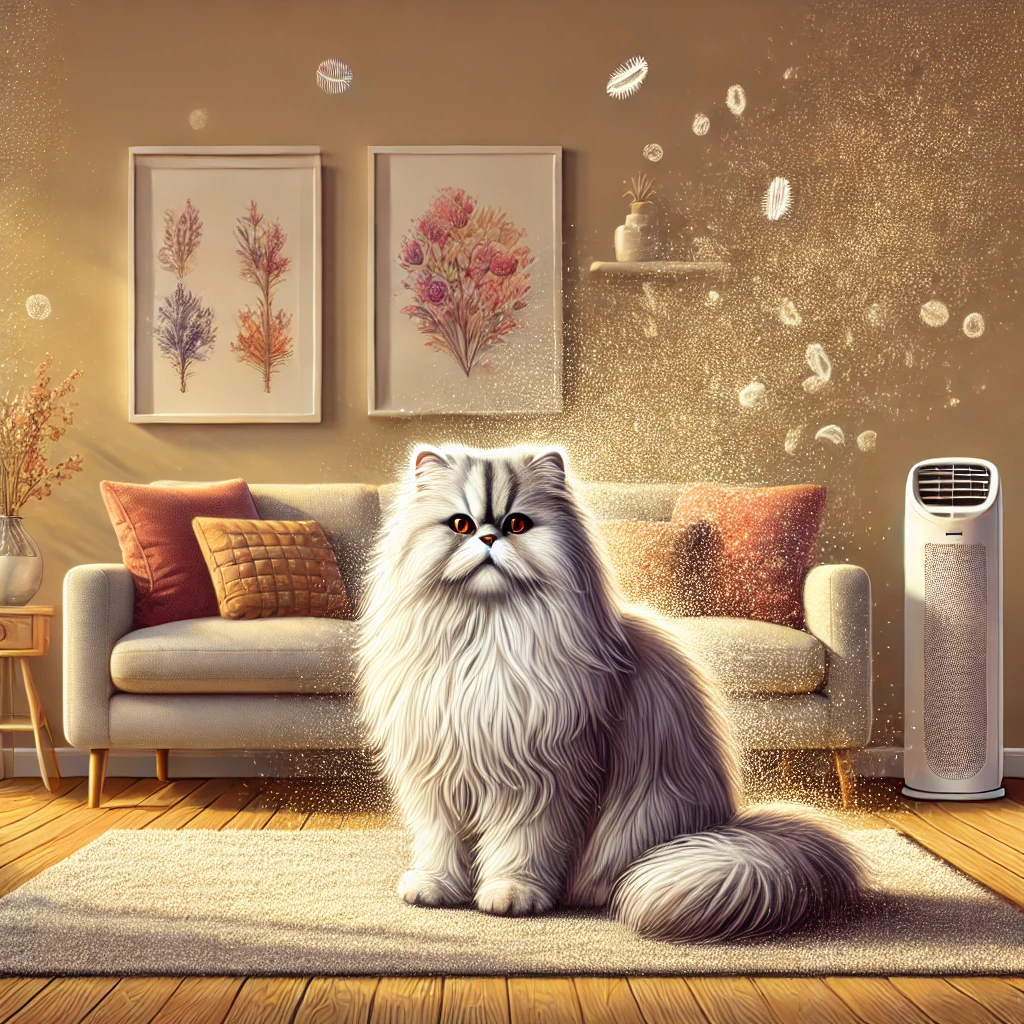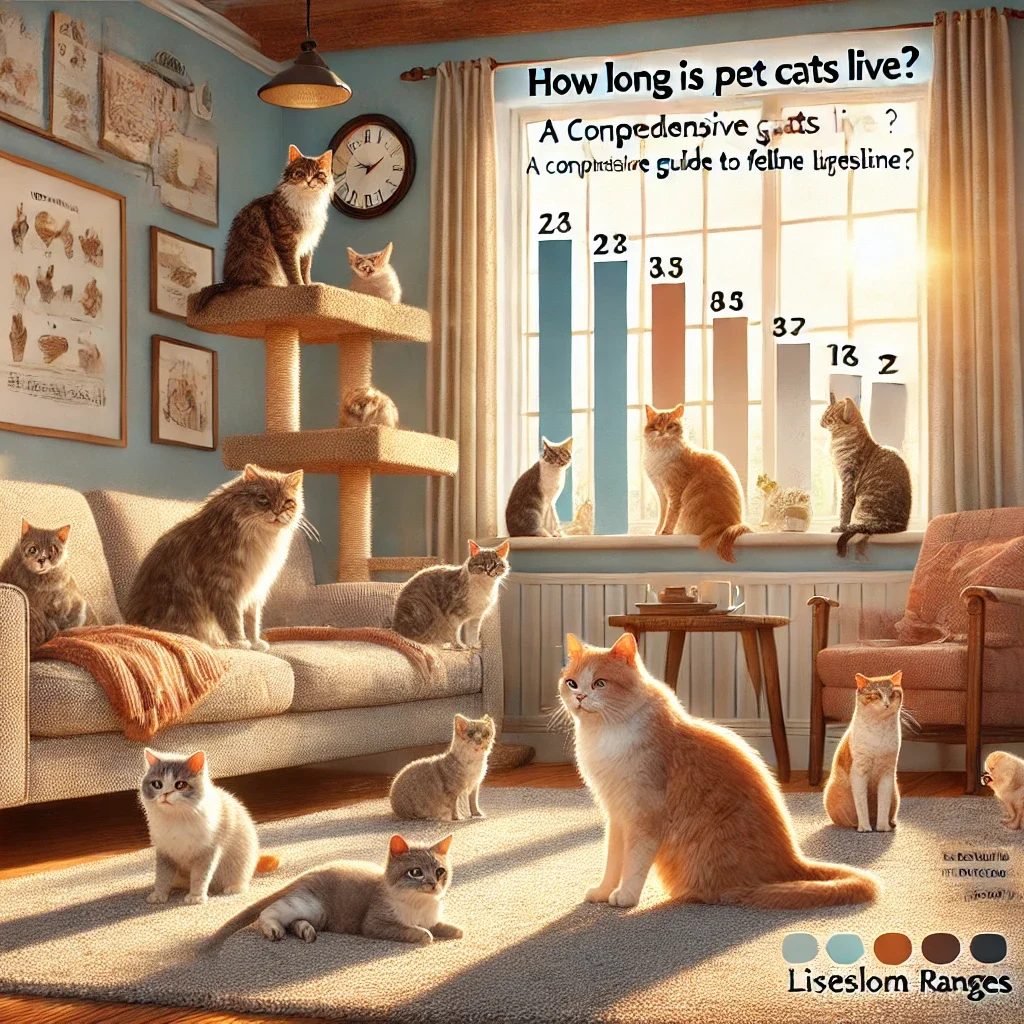Cats are beloved companions known for their independence, playful nature, and unique personalities. Understanding how long pet cats typically live and what factors influence their lifespan can help us provide the best possible care for our furry friends.
Table of Contents
Average Lifespan of Pet Cats
Domestic cats generally live between 12 and 18 years, but with proper care, many can reach their twenties. Some cats, especially indoor ones, have been known to live beyond 25 years. The lifespan of a cat depends on several factors, including genetics, environment, and lifestyle.
Indoor vs. Outdoor Cats
The environment plays a significant role in a cat’s lifespan. Here’s a breakdown of the difference between indoor and outdoor cats:
- Indoor Cats: Typically live longer, averaging 13–17 years or more. Indoor cats face fewer threats, such as predators, traffic, and disease.
- Outdoor Cats: On average, live 5–10 years, primarily due to increased risks like accidents, exposure to diseases, and harsh weather.

Factors Affecting a Cat’s Lifespan
1. Breed and Genetics
Certain cat breeds are predisposed to specific health conditions that can influence their longevity:
- Siamese and Burmese: Often live into their late teens or early twenties.
- Maine Coons and Ragdolls: Generally live 12–15 years.
- Mixed-breed Cats: Often enjoy robust health and longevity due to greater genetic diversity.
2. Diet and Nutrition
A balanced diet is crucial for a long and healthy life:
- Provide high-quality cat food tailored to your cat’s life stage (kitten, adult, senior).
- Ensure proper hydration by offering fresh water or wet cat food.
- Avoid overfeeding to prevent obesity, which is linked to numerous health problems.

3. Preventative Healthcare
Regular veterinary visits help catch potential health issues early:
- Annual check-ups and vaccinations are essential.
- Routine dental care prevents oral diseases that can lead to serious complications.
- Spaying or neutering reduces the risk of certain cancers and behavioral problems.
4. Environment and Enrichment
A safe and stimulating environment contributes significantly to a cat’s mental and physical well-being:
- Offer plenty of toys, scratching posts, and climbing structures.
- Provide regular playtime to keep your cat active and reduce stress.
- Ensure a safe space for rest and relaxation.
Common Health Issues in Cats
Cats may develop specific health conditions as they age, including:
- Kidney Disease: Common in senior cats, requiring dietary adjustments and medical care.
- Hyperthyroidism: Affects metabolism, typically in older cats.
- Diabetes: Often linked to obesity and managed through diet and medication.
- Arthritis: Causes joint pain and mobility issues in older cats.
Signs of Aging in Cats
As cats age, they may show signs of slowing down or developing specific health concerns. Watch for these changes:
- Decreased activity or reluctance to play.
- Weight loss or gain.
- Changes in coat condition or grooming habits.
- Increased vocalization or behavioral shifts.

Tips for Extending Your Cat’s Lifespan
- Provide a Nutritious Diet: Choose age-appropriate, high-quality food.
- Ensure a Safe Environment: Keep cats indoors or provide secure outdoor enclosures.
- Stay on Top of Vet Visits: Preventative care is key to a healthy, long life.
- Encourage Exercise: Regular play helps maintain a healthy weight and reduces stress.
- Monitor Health Changes: Early detection of issues leads to better outcomes.
Conclusion
By understanding the factors that influence your cat’s lifespan, you can take proactive steps to ensure they live a long, happy, and healthy life. Providing proper care, regular veterinary check-ups, and a safe environment can make all the difference in giving your feline companion the best years possible.



